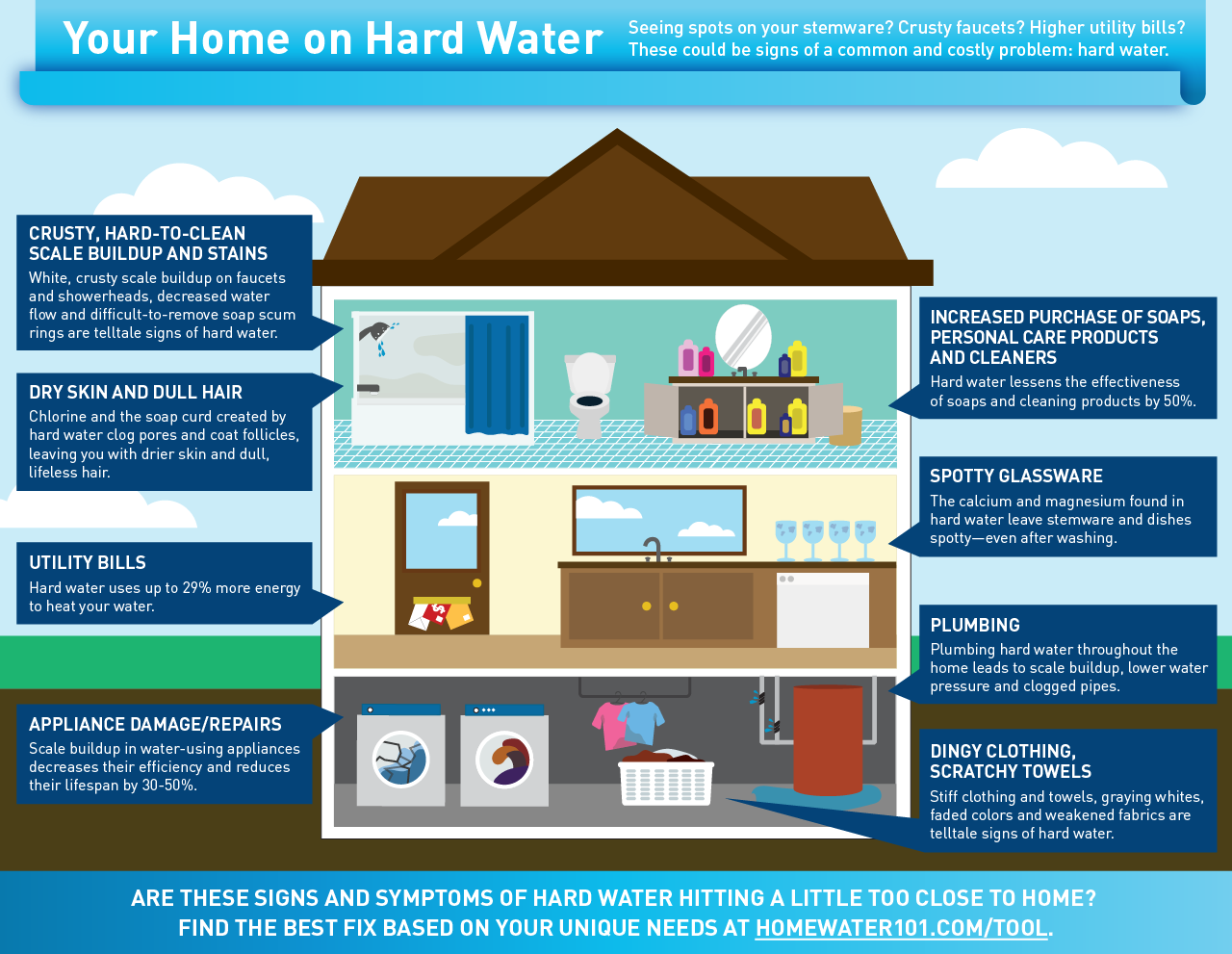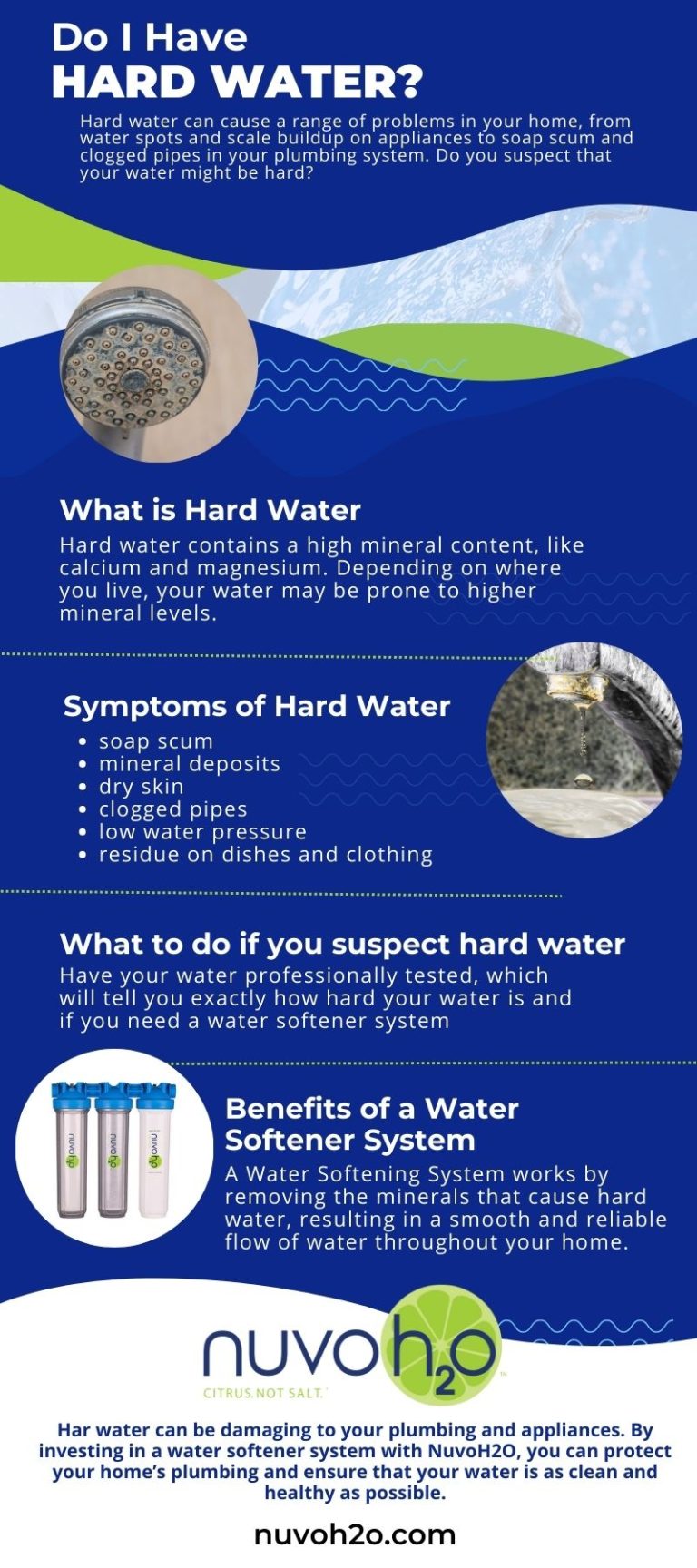Have you ever noticed stubborn spots on your dishes after washing them, or felt like your hair isn’t as soft and shiny as it used to be? These might be signs that your home has hard water.
Hard water is more common than you might think, and it can affect various aspects of your daily life, from the way you clean to the way you feel after a shower. But how can you tell if hard water is the culprit behind these issues?
Recognizing the signs is the first step to tackling the problem, and this article will guide you through the process with ease. Discover simple ways to identify hard water in your home, and learn what you can do to improve your water quality for a better home experience. Stay tuned to uncover the secrets of spotting hard water and reclaiming the comfort and efficiency you deserve.
Signs Of Hard Water
Hard water leaves white stains on faucets. These stains are from mineral deposits. The minerals build up over time. This can make your faucets look dirty. Cleaning them is not easy. The stains come back quickly.
Soap scum is a white film. It covers your bathroom tiles. Soap mixes with minerals in hard water. This makes the scum. It sticks to shower walls and tubs. Cleaning the scum is hard work. It returns soon after cleaning.
Hard water makes skin feel dry. It can cause itchiness. Hair becomes brittle. It may look dull. Using more soap does not help. The minerals block moisture from skin and hair. This leads to more dryness.

Credit: homewater101.com
Effects On Appliances
Hard water can clog pipes. Mineral buildup causes this issue. Appliances work harder. They use more energy. This means higher bills. Water heaters struggle more. They heat water slowly. Dishwashers leave spots on dishes. Clothes washers use more detergent. Cleaning becomes tough.
Appliances wear out faster with hard water. Mineral deposits damage parts. This happens over time. Heaters break down often. Dishwashers need repairs. Washing machines stop working soon. Replacing appliances costs money. Hard water makes them old quickly.
Hard water raises energy bills. Appliances consume more power. Water heaters are less effective. They need extra energy. Dishwashers run longer cycles. This uses more electricity. Washing machines waste power. Hard water increases expenses.
Testing For Hard Water
Home test kits help check for hard water. They are easy to use. You can buy them at local stores. Follow the instructions on the kit. It usually involves dipping a strip in water. The strip changes color to show results. Results tell you if water is hard or not. Kits are affordable and quick.
Professional testing is more detailed. Experts use special tools. They visit your home to test water. Results are accurate and detailed. They tell you mineral levels in water. This method is more expensive. But you get precise information. Ideal for serious concerns.
Water companies provide quality reports. These reports show water hardness. You can request these reports. They give detailed water information. Includes mineral content and more. Easy to read and understand. Helpful for those wanting more data.

Credit: www.reynoldswater.com
Solutions For Hard Water
Signs of hard water in your home include white spots on dishes and soap scum in sinks and tubs. Faucets may show mineral build-up. Clothes might feel scratchy after washing. A water softener can help reduce these issues, improving water quality and extending appliance life.
Water Softeners
Water softeners help remove hard minerals. They make water feel smoother. These devices use salt to replace calcium and magnesium. This process is called ion exchange. The softener needs regular salt refilling. Many homes use softeners to improve water quality.
Alternative Treatments
Some people use vinegar to clean hard water stains. Vinegar breaks down the minerals. Magnetic devices also help. They change how minerals act in water. These methods are simple and cost-effective. Not everyone wants to install big systems.
Regular Maintenance
Clean faucets and showerheads often. This prevents mineral buildup. Check pipes for any blockages. Regular inspection keeps water flowing well. Filters can also help. They trap unwanted minerals.
Benefits Of Addressing Hard Water
Improved Appliance Performance: Hard water can harm appliances. Minerals build up in machines. This can make them work less well. Removing hard water helps appliances run better. They last longer too. So, they break less often.
Enhanced Personal Care: Hard water affects skin and hair. It can make skin dry. Hair may feel rough and dull. Soft water can change this. It helps skin feel smooth. Hair becomes shiny and soft. Personal care gets better.
Cost Savings in the Long Run: Hard water can cost more money. It causes more repairs. Appliances need fixing often. Soft water reduces these costs. Bills for soap and shampoo are lower too. In the end, soft water saves money.

Credit: www.kent.co.in
Frequently Asked Questions
How To Tell If A Home Has Hard Water?
Check for mineral buildup on faucets, soap scum in showers, and white spots on dishes. Notice dry skin after bathing. Test water hardness with home kits for accuracy. Hard water can affect appliances and plumbing over time, leading to inefficiency and potential damage.
How To Check Hardness Of Water At Home?
Use a home water testing kit to measure hardness. Test strips change color based on mineral content. Compare strip color to chart provided in the kit for accurate reading. Alternatively, boil water and observe white residue on pots, indicating hardness.
Both methods are simple and effective for checking water hardness at home.
How Do I Tell If I Need A Water Softener?
Test for hard water signs like scale buildup on faucets, soap scum in sinks, or stiff laundry. Use a water test kit to check mineral levels. Consider a water softener if you notice dry skin or hair after showers. Regular maintenance of appliances may also indicate hard water issues.
What Are The Symptoms Of Hard Water Syndrome?
Hard water syndrome symptoms include dry skin, dull hair, faded clothes, and limescale buildup on appliances. It affects soap lathering, leading to residue on dishes and surfaces. Persistent issues may indicate hard water presence in your home, impacting daily cleaning and hygiene routines.
Conclusion
Identifying hard water in your home is essential. It affects appliances and skin. Look for common signs like scale buildup on faucets. Test your water if unsure. Simple solutions exist to soften water. Use water softeners or install filters. Protect your pipes and appliances.
Soft water offers many benefits. Better for cleaning and skin. Improves appliance efficiency. Saves money in the long run. Regular checks keep your water system healthy. Stay informed and maintain your home’s water quality. It’s worth the effort. Enjoy the peace of mind.
Happy home, happy life.


